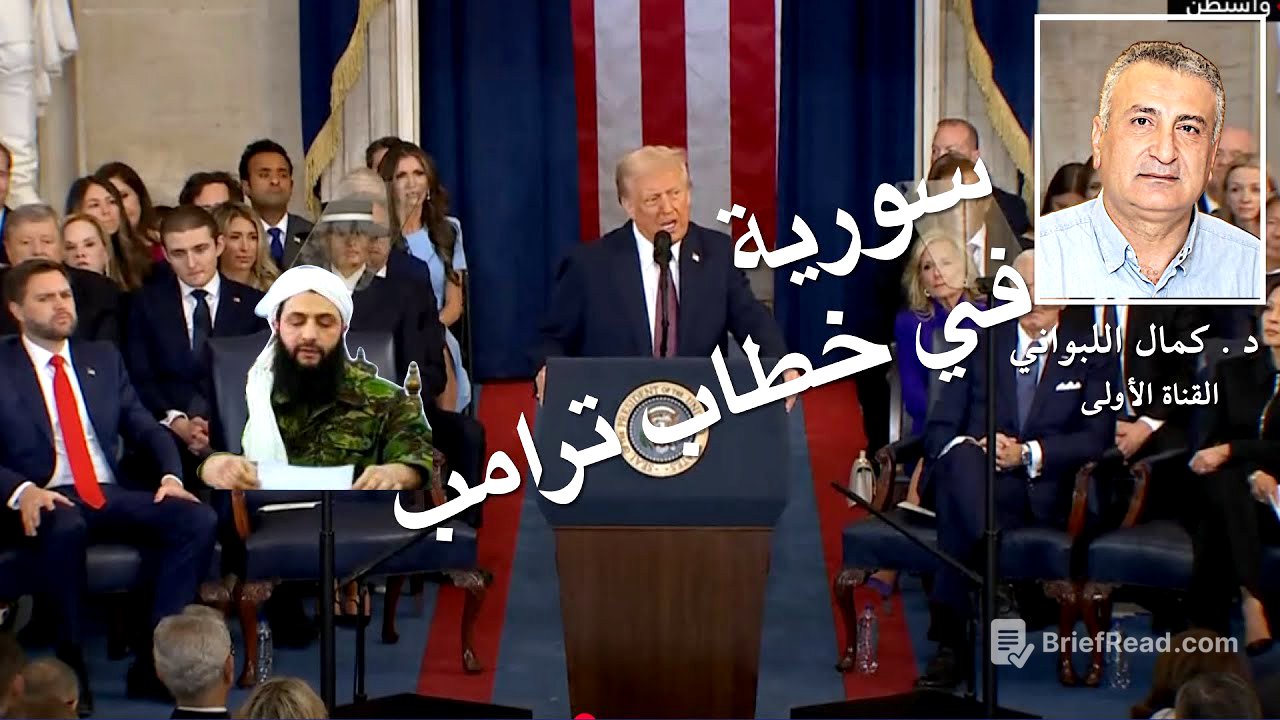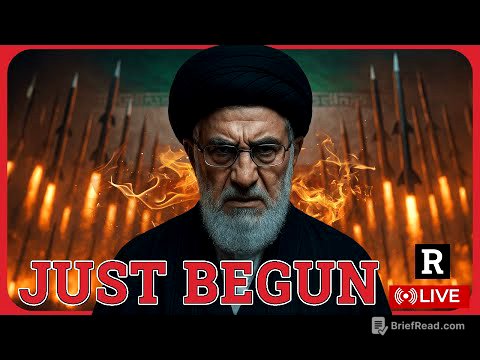TLDR;
This video analyzes Donald Trump's inaugural speech, focusing on his approach to foreign policy and his views on various global issues. The speaker argues that Trump's presidency represents a departure from traditional American foreign policy, characterized by a focus on national interests and a rejection of multilateralism. He also criticizes Trump's stance on immigration, trade, and the role of the US military. The speaker concludes by questioning whether Trump will uphold American values and principles in his foreign policy, or if he will continue to prioritize American interests above all else.
- Trump's presidency represents a departure from traditional American foreign policy.
- Trump's views on immigration, trade, and the role of the US military are criticized.
- The speaker questions whether Trump will uphold American values and principles in his foreign policy.
Trump's Inaugural Speech: A New Era of American Foreign Policy? [0:00]
The speaker begins by analyzing Trump's inaugural speech, highlighting his focus on American interests and his rejection of traditional political structures. Trump's outsider status, his independence from party politics, and his willingness to challenge established norms are emphasized. The speaker argues that Trump's approach to foreign policy is characterized by a focus on national interests and a rejection of multilateralism.
Trump's Stance on Immigration [2:39]
Trump's stance on immigration is discussed, with the speaker highlighting his concerns about illegal immigration from Mexico and Central America. Trump's proposed solutions, including building a wall and enforcing stricter border controls, are presented. The speaker argues that Trump's approach is overly simplistic and fails to address the root causes of immigration, such as poverty and instability in Latin America.
Trump's Trade Policies [3:56]
Trump's trade policies are examined, with the speaker focusing on his proposed tariffs and his rejection of free trade agreements. The speaker argues that Trump's protectionist policies are a departure from traditional American economic policy and could have negative consequences for the global economy.
Trump's Views on the US Military [5:48]
Trump's views on the US military are discussed, with the speaker highlighting his plans to modernize the military and increase defense spending. The speaker argues that Trump's approach to the military is driven by a desire to project American power and influence around the world. He also criticizes Trump's willingness to use the military as a tool for economic gain, comparing it to the Roman Empire's practice of using its military to acquire wealth.
Trump's Impact on the Middle East [7:40]
The speaker discusses the potential impact of Trump's foreign policy on the Middle East, focusing on his stance on Iran and the Syrian conflict. He argues that Trump's approach to the region is likely to be characterized by a focus on American interests and a willingness to use military force. He also criticizes Trump's support for Saudi Arabia and other authoritarian regimes in the region.
Trump's Views on Gender and Sexuality [9:07]
Trump's views on gender and sexuality are examined, with the speaker focusing on his opposition to transgender rights and his support for traditional gender roles. The speaker argues that Trump's views are out of step with modern society and could have negative consequences for LGBTQ+ individuals.
Trump's Approach to War and Conflict [11:34]
Trump's approach to war and conflict is discussed, with the speaker highlighting his focus on ending wars and negotiating peace deals. The speaker argues that Trump's approach is likely to be pragmatic and transactional, with a focus on American interests. He also criticizes Trump's willingness to use military force to achieve his goals.
Trump's Legacy in Syria [12:19]
The speaker discusses Trump's legacy in Syria, criticizing his administration's failure to enforce UN resolutions and its support for the Syrian regime. He argues that Trump's policies have contributed to the ongoing conflict and the humanitarian crisis in Syria.
Trump's Support for Extremist Groups [13:21]
The speaker criticizes Trump's support for extremist groups, arguing that his policies have inadvertently strengthened these groups and contributed to instability in the Middle East. He also criticizes Trump's use of sanctions against Syria, arguing that they have had a negative impact on the Syrian people.
Trump's Impact on the Global Order [19:38]
The speaker concludes by discussing the potential impact of Trump's presidency on the global order. He argues that Trump's policies could lead to a decline in American influence and a rise in nationalism and populism around the world. He also expresses concern about the future of human rights and democracy under Trump's leadership.
Trump's Responsibility to the World [20:17]
The speaker concludes by calling on Trump to uphold American values and principles in his foreign policy. He argues that America has a responsibility to promote democracy, human rights, and peace around the world. He also criticizes Trump's support for authoritarian regimes and his willingness to use military force to achieve his goals.









